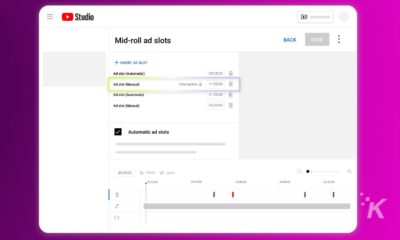YouTube
YouTube hits over 1 billion monthly podcast users
YouTube podcasts has surpassed competitors like Spotify and Apple Podcasts.

Just a heads up, if you buy something through our links, we may get a small share of the sale. It’s one of the ways we keep the lights on here. Click here for more.
Despite not being a traditional podcast app, YouTube has emerged as the dominant platform for podcast consumption.
According to YouTube, 1 billion people listen to podcasts on the platform each month, far surpassing competitors like Spotify and Apple Podcasts.
This staggering audience size solidifies YouTube’s position as the most influential player in the podcasting space.
YouTube reaches 1 billion monthly podcast viewers
For comparison, Spotify reported 100 million regular podcast listeners in 2023. If one-eighth of the global population turns to YouTube for podcasts, it suggests that the platform has become the primary destination for online radio content.
However, leveraging YouTube’s massive audience requires podcasters to put in additional effort.
Unlike dedicated podcast platforms, YouTube does not allow listeners to turn off their phone screens while continuing to listen unless they subscribe to YouTube Premium.
This limitation forces podcasters to create engaging video content to make the most of their presence on the platform. Simply uploading audio with a static image is unlikely to yield significant engagement.
Word on the internet is that producing video podcasts for YouTube can be expensive.
YouTube’s own data reinforces the importance of video, with more than 400 million hours of podcast content watched on TV alone last year.
Casual webcam recordings are unlikely to achieve meaningful traction, meaning high production value is crucial for success.
Another challenge for podcasters is adapting to YouTube’s ecosystem. Unlike traditional podcast platforms, YouTube does not support RSS feeds, meaning each episode must be uploaded as a native video.
This forces podcasters to conform to YouTube’s advertising system and revenue model, limiting their ability to sell and track ads independently.
The metrics that podcast creators typically rely on to attract advertisers are also different on YouTube, making monetization strategies more complex.
Despite these challenges, the benefits of reaching YouTube’s vast audience make the tradeoff worthwhile for many podcasters.
Do you use YouTube for podcasts? Do you think the experience needs to be any different, or are you happy with it? Tell us below in the comments, or ping us via our Twitter or Facebook.


























